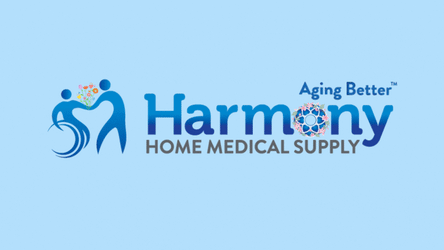Navigating assisted living facilities and nursing homes
When considering the best options for your loved one's care, there is a choice to transition your loved one to an assisted living facility or a nursing home. If you consider making this choice, it would be best to know about these facilities and what they can provide for your loved one.
Understanding assisted living facilities and nursing homes.
At a glance, both assisted living facilities and nursing homes can seem similar because they are both elder care services. However, their levels of care and the way they operate set them apart. We'll explain how these facilities work, the care they provide, and an idea of their cost.
Assisted living facilities
Assisted living facilities, also known as senior living communities or adult foster care. Are focused on your loved one's quality of life. They do provide medical services, mainly helping with diet, nutrition, and incontinence. However, they allow their residents to be independent and active with recreational activities.
These facilities provide personal care, light housekeeping, and laundry. They also offer communal dining halls, with meals given three times a day and special meals for those with medical conditions. Certified caregivers will help with their daily living activities, with other ancillary staff available throughout the day. Residents can socialize and spend time in communal spaces and rooms, with plenty of recreational activities to keep them entertained.
Most assisted living facilities will have a licensed nurse who thoroughly assesses each resident. They also work with other health care professionals such as dentists and chiropractors who will often come to see their clients. Some facilities offer specialized memory care units for residents with Alzheimer's disease or some form of dementia. Other assisted living facilities may even provide physical and occupational therapies and wellness rooms for their residents.
Assisted living facilities are suitable if your loved one is relatively independent and doesn't need constant assistance. They will receive help for their daily activities and medical assistance when needed.
Assisted living facilities can cost approximately $4,000 per month. Supervised care for conditions such as Alzheimer's can cost between $4,800 and $5,200 per month. These facilities are paid out of pocket, but financial aid is available through VA Pensions, Medicaid in certain states, and other means.
Regarding Alzheimer's, Medicare can cover the medical care services in these facilities but won't cover custodial or personal care. However, Medicare Advantage plans can offer long-term care services and support as a supplemental health benefit.
Nursing homes
Nursing homes are also known as intermediate care nursing facilities or skilled nursing facilities. These facilities provide a high level of medical care for residents who have complex medical conditions and need constant assistance with daily living activities, but at a higher level.
The residents that stay at these nursing homes may be bedridden, completely incontinent, or need to be tube-fed. Licensed physicians will oversee their care, nurses and other skilled medical professions are on hand. Nursing homes use the same medical equipment as hospitals. They even offer short rehabilitation for those who can return home.
The environment in nursing homes is more comparable to a clinic rather than a home. So there aren't many recreational activities on offer, and residents aren't as independent. They may not have as many opportunities to socialize.
Nursing homes are suitable if your loved one needs full-time medical care or is transitioning out of hospital care. They have the resources to aid their recovery and stabilize it. Some homes even provide palliative care your loved one requires it.
With the higher standard of care also comes a higher cost. Nursing homes can cost approximately $7,441 per month. In terms of coverage, Medicaid can cover between 45% - 65% of nursing home costs through its state affiliates. To qualify for Medicaid coverage, you would have to meet their financial guidelines. If you manage to qualify, Medicaid will pay for 100% of the nursing home costs at one of their approved facilities. The VA provides two options through their Aid and Attendance Benefits (Improved Pension) and state VA nursing homes.
Searching for an assisted living facility or nursing home
Now that you understand both types of facilities, you may be starting your search for a suitable one for your loved one. Searching for a facility can be complex and unclear. Here are some points to help navigate your search for an assisted living facility or nursing home.
Considerations to make when choosing a care facility
Here are some considerations to take in when choosing a care facility for your loved one:
- Your loved one's well-being is the first thing to consider. Will the facility be able to tend to their needs? Will they feel comfortable being in a nursing home or an assisted living facility?
- It is essential to know if the facility is certified by Medicare and Medicaid. How has their operating history been? Look them up online and do some research.
- Do they have any form of specialty care available for your loved one's condition?
- Find out how the cost of care will add up. Look into the facilities' pricing structure and billing. Would you be able to claim any benefits?
- You should consider the facility's location in your search. You would want to be able to visit your loved one without needing a long drive, especially during an emergency.
- The facility will have its admission requirements, which can take time to process. Be sure to ask if you can also receive copies of the documents and contracts involved.
What to look for while touring a care facility?
Suppose you find one that suits your criteria. You will want to visit the care facility in person and see how they operate. Here are some key things to look out for:
- The physical layout of the facility and its furnishings. Is the place well lit, clean, and tidy? How are the communal areas set? If there is an outdoor area, how is it kept?
- Take a look at the residents' rooms and bathrooms. Is anything shared? How is the quality of the housekeeping?
- If you are coming in during mealtime, look at the food they provide to the residents. What do they serve? Is it appealing? How long do the meals take to prepare? Can it be reheated? How is it brought to a bedridden person?
- See how the residents are feeling. Are they enjoying their time? What do they have to keep them entertained? Are there any activities planned?
- Look at the staff working in the facility? Is there enough staff present? How do they interact with the residents? Is the staff welcoming and attentive?
- What medical equipment and personnel are available? Does the facility have a form of emergency transportation?
- It can be worth visiting again without calling ahead on another day or week. So you can have more time to examine the facility and get more information.
- You shouldn't ignore your gut feeling as well. If the facility doesn't feel right for you, it may not be the best choice for you and your loved one. It's a tough decision to make, and it shouldn't be harder on you.
What are key questions to ask a potential provider?
During your tour, be sure to ask as many questions as you can. Your decision will become more informed. Here are some questions you can ask:
- How is a resident's care plan structured and carried out?
- How are staff selected, and what are their qualifications? Do they get any additional training?
- Who is the licensed physician? How often are they present?
- How are the residents' medical needs being met? How is their condition monitored?
What you will need before moving into any care home:
There are prerequisites and criteria to fulfill before moving your loved one into a care facility:
Assisted living facility:
- Facility admissions paperwork.
- Your loved one's medical history, along with a physical.
- A negative Tuberculosis (TB) test or an X-ray of their chest.
Nursing home:
- A physician's order for your loved one's admission along with their medication and treatment.
- Your loved one's medical history, along with a physical.
- A state-required form.
- A negative Tuberculosis (TB) test or an X-ray of their chest.
- Nursing home admissions paperwork.
- Financial assessment paperwork.
Take your time to read and understand the admission agreement – don't sign anything without looking it over closely. Bring up and terms that seem illegal or unfair. Consult with an attorney if needed.
We hope that this article will help you and your loved one navigate assisted living facilities and nursing homes with all of that information covered.
FAQ:
Does my loved one need a professional assessment?
For your loved one to enter a nursing home, a Patient Review Instrument (PRI) Screen is required by law. If your loved one is being discharged from a hospital, a social worker will care for this. Suppose your loved one is entering one from home or an assisted living facility. You can contact a nurse or agency to do the PRI.
What should my loved one bring when moving into a care facility?
Here's a list of things your loved one would probably want when moving to a care facility:
- Clothes and accessories.
- Personal care products.
- Linens and bedclothes.
- A smartphone, tablet, or laptop.
- Decorations such as pictures, cards, and flowers.
- Any sentimental items.
- Hobbies such as board games or puzzles.


